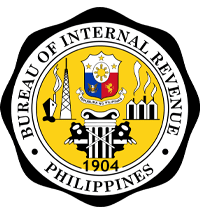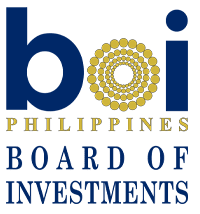Contact Us
Ready to Launch? Let's Talk.
Consult with our business experts and get a tailored proposal—no strings attached.


You’ll need to fulfill your business registration requirements with a number of government agencies:

Businesses that aren’t duly registered face costly penalties. On the other hand, there are several perks for those that comply—from tax breaks to long-term land leases and streamlined customs procedures.
These incentives are given by agencies that encourage investment in the Philippines, such as the Philippine Economic Zone Authority (PEZA) and the Board of Investments (BOI).
How you go about setting up your business in the Philippines will depend on the type
of business you want to run. Consult us to find the right one for your needs.

The fastest option to start a business. A single owner controls all assets and profits and can mix business and personal assets.

Get the perks of a traditional corporation without more than one stockholder. An OPC has limited liability and one business owner.

A popular option for businesses with foreign investors. Corporation equity can be: 100% Filipino, 60% Filipino + 40% Foreign, or 40%-100% Foreign.

A good option for both local and foreign companies. You can register a general or limited partnership.

A foreign company can also register as a type of resident foreign corporation. Choose the right corporate entity for your needs.

Register with PEZA or BOI to take advantage of tax breaks and other investor perks in the Philippines.
Launchpad saves you the back-and-forth trips to government offices. We help facilitate
business registration transactions with these government agencies.





Every business registered in the Philippines must go through the following government agencies.
Department of Trade and Industry (DTI)
For sole proprietorships, these are the basic requirements:
Securities and Exchange Commission (SEC)
For one person corporations (OPC), domestic corporations, and partnerships, basic requirements include:
Local Barangay
These are the basic requirements for a barangay clearance:
City/Municipality
A Mayor’s Permit or Municipal License is also needed before a business can operate in a city or locale. Basic requirements usually include:
Bureau of Internal Revenue (BIR)
Businesses must have a tax identification number (TIN) and authority to print receipts and invoices. Basic requirements for BIR registration include:
Social Security System (SSS)
Any employer who benefits from the services of a person must be registered with SSS.
Department of Labor and Employment (DOLE)
Any business with at least one employee is required to register with DOLE.
Foreign corporations can do business in the Philippines as a domestic corporation or as a resident foreign corporation.
These are the options to set up official extensions of your head office.
Branch Office
A branch office in the Philippines can do income-generating activities. It doesn’t have a separate legal identity from the company head office.
Representative Office
A representative office is limited to conducting non-commercial activities for its parent company. It doesn’t have a separate legal identity. Since it cannot engage in revenue-generating activities, it’s not allowed to directly offer products/services in the country.
Regional Headquarters (RHQ)
An RHQ is another business entity that cannot engage in income-generation. It’s a popular option for foreign companies with an international network of subsidiaries, branches, and affiliates. It doesn’t have a separate legal identity from its parent company.
Regional Operating Headquarters (ROHQ)
An ROHQ is an income-generating entity that expands its parent company’s business activities in the Philippines. It’s often established by foreign corporations with an international network of subsidiaries, branches, and affiliates.
Launchpad works with businesses of all sizes, from small-and-medium enterprises (SMEs) to multinational corporations. We provide end-to-end business registration assistance, which includes:
We can also help you in evaluating the following:
Launchpad has an in-house team of seasoned business registration experts and bookkeeping professionals. Additionally, we also have a corporate lawyer who provides us with sound legal guidance on company formation and business registration in the Philippines.
The timeframe of registration will vary depending on the exact business entity you choose and the prompt submission of requirements. Here’s a preview, so you know what to expect:
Get in touch with us via email or via phone call to learn more.
If you have other questions that are not answered in the above FAQ, please feel free to get in
touch with us via email at [email protected], via phone call, or using our website contact form.
Consult with our business experts and get a tailored proposal—no strings attached.
